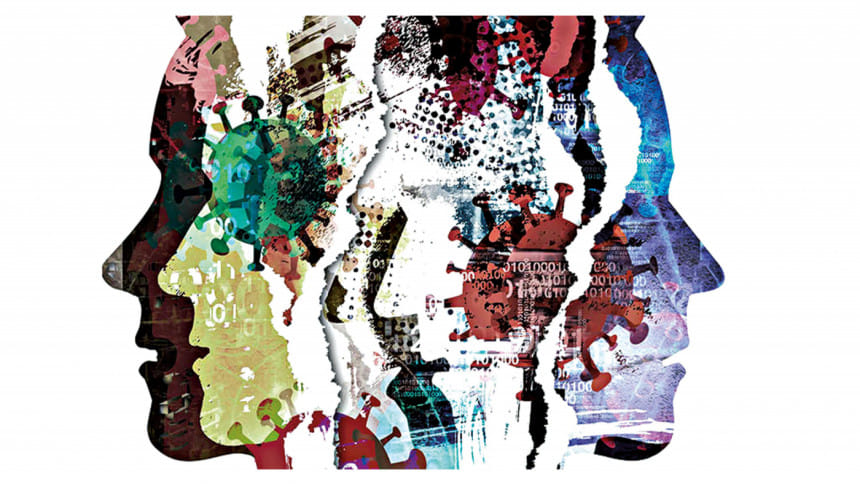COVID-19 and the dilemma between life and livelihood

India's official record on COVID-19 human toll is more than a staggering 3,80,000 now, which, according to experts, might be far below the actual number. Though in early March this year, the country's Health Minister declared the country to be 'in the endgame' of the COVID-19 crisis, now an underprepared India is in the grips of public health emergency recording more than 7,000 deaths and almost 100,000 new infections only in a day last week.
Regarding controlling the spread of the virus, WHO believes that large-scale physical distancing measures and movement restrictions, often referred to as 'lockdowns,' can be helpful, also cautioning that such measures disproportionately affect disadvantaged groups, including people dependent on daily labour for subsistence. Lockdowns are believed to help the States buy time to prepare and plan. Since the beginning of the second wave this year, the Indian government however, does not seem to be in need of 'time', as they dismissed the idea of enforcing lockdown except as a last resort, and as the Indian premier passionately posed, the dilemma is between life and livelihood, and that economic activities and livelihood must remain least impacted.
This piece is not concerned about the efficacy of lockdowns as such (it does not intend to advocate in favour of lockdowns either), rather about the dilemma superimposed by the State on its people, and its human rights implications, both of which are as relevant for Bangladesh, as they are for India or any other countries.
The dilemma between life and livelihood presupposes loss of life as an inevitable threat, diluting the healthcare obligations that should naturally intervene (inasmuch as the prevention, treatment and control of epidemic, endemic, occupational and other diseases (such as COVID-19) come within the purview of right to health); similarly, it poses loss of livelihood as unavoidable too, bypassing adequate standard of living, characterised by continuous improvement of living conditions, which is supposed to mitigate the risks even amid drastic measures, such as lockdowns. The dilemma may be equated with what Henry Shue calls the 'subsistence exchange contract' in which individual has to sacrifice one of one's other rights in return for subsistence.
Grand lists of socioeconomic rights that many countries, due to economic constraints, cannot realise at once, seem farcical to many. To address the 'farce', understanding that these 'rights' are in fact 'goals' that countries should promote, is significant (says James W. Nickel). Some do disagree and argue that rights are indeed rights and are to be called so, even though they are not fulfillable in aggregate (opines Jeremy Waldron). The International Covenant on Economic Social and Cultural Rights (ICESCR) 1966, to which many countries are parties, does both and none. It does recognise the socio-economic rights as rights but does not call a State a right-violator or a direct duty-bearer, as it requires the States to achieve progressively the full realisation of the rights by all appropriate means. And true that, as Onora O'Neill says, such duty remains entirely amorphous when adequate infrastructures are missing or weak. Effective responses to COVID-19 and any possible future pandemic require robust public health infrastructure. However, public health remains severely underfunded in many countries, and that is true for many, if not all, hard-hit developing economies like India as well. Therefore, the ICESCR obligations, minimum core included, remain amorphous in many countries, while they go on to pose a depressing dilemma to the citizens.
For most part, we argue for constitutionalising socio-economic rights coupled with strong judicial review, often forgetting how strong mechanism of judicial review can keep maintaining social inequalities (since people from the higher strata of the society are more likely to access judicial fora), when nothing substantive is done for realising the said rights. Many countries' experiences show something quite similar: they recognise socio-economic rights in their Constitutions, and over the years, invest in crafting ways for judicially enforcing them, quite effectively too. However, amid the current crisis, they hopelessly find that due largely to their low public healthcare budget, over a long period of time, judicial enforcement, however strong, comes in no use. The present crisis only unmasks how countries tend to lack a human-rights based approach to healthcare in general and to the COVID-19 pandemic in particular, despite being parties to the ICESCR and despite constitutionalising the ESC rights.
While judicial enforceability is important and can be a great measuring yard to assess the progress and steps taken by States at large, the idea should be to strengthen the international human rights scheme, especially for its specific role, as opposed to that of constitutional rights scheme. Categorising rights (as belonging to different generations), deepening the schism between civil-political and economic-social rights, and not holding States directly accountable as rights-violators or duty-bearers for the latter rights, are all farcical, if anything is needed to be called out as such.
The writer is Lecturer in Law, Bangladesh University of Professionals.

 For all latest news, follow The Daily Star's Google News channel.
For all latest news, follow The Daily Star's Google News channel. 



Comments